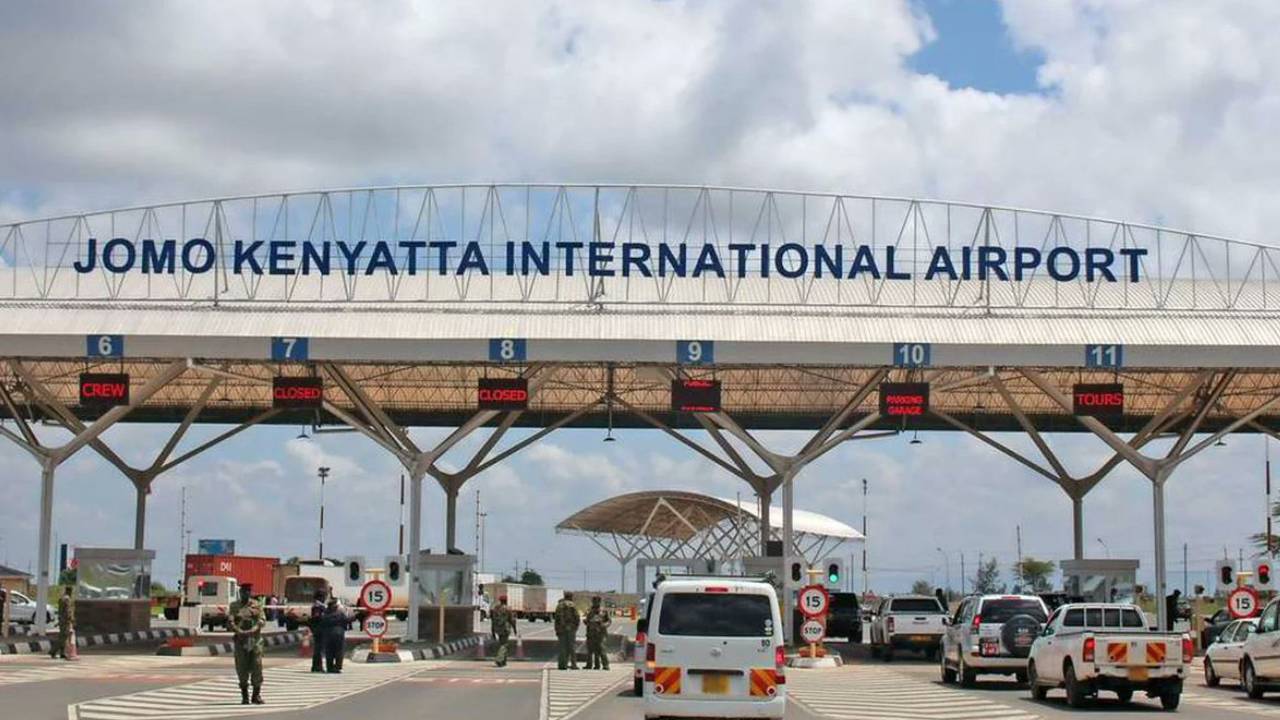Government seeks new investor for JKIA modernisation after Adani deal cancellation

Kiptoo assured that the new public-private partnership would be competitive and transparent, emphasising the airport's importance as a regional hub.
Treasury Principal Secretary Chris Kiptoo has announced that the government will identify a new investor to expand and modernise Jomo Kenyatta International Airport (JKIA) through a public-private partnership.
This follows the cancellation of a controversial deal with Indian conglomerate Adani Group.
More To Read
- State unveils Sh5 trillion infrastructure plan, JKIA upgrade and new airport to start in January 2026
- JKIA–ABC road corridor to get new look as Ruto revives city roadworks
- Kenya sees major boost from visa-free policy as tourist numbers hit 1.8 million
- Kenya Airways staff jailed for 25 years for trafficking heroin
- MPs warn Treasury over lapses in fiscal discipline, pension system delays
- Tender wars at JKIA threaten security and protocol standards, court petition reveals
Speaking before the National Assembly's Public Accounts Committee, Kiptoo revealed that the airport's expansion, which requires $2 billion (approximately Sh260 billion), cannot be financed through the national budget due to fiscal constraints.
"We have a very tight fiscal space at the moment. JKIA requires $2 billion, and the expansion plan has lagged for over a decade. This is a strategic hub, and modernising it is essential, but we must look for alternative partners apart from Adani," he said
He informed the committee, chaired by Funyula MP Ojiambo Oundo, that the Treasury was restructuring its public-private partnership department to handle complex projects effectively.
He highlighted training initiatives for ministries, departments, agencies, and county governments on structuring such partnerships.
"We have improved processes to ensure transparency and accountability in structuring public-private partnerships. Bureaucracy will be minimised, and due diligence conducted before entering agreements," Kiptoo said.
Oundo, however, expressed concerns over public-private partnerships, citing the public's scepticism following the Adani controversies.
"We appreciate the value of these partnerships, but we insist on transparency and accountability to protect Kenyans' interests," he said.
Bura MP Yakub Adow echoed these sentiments, urging competitive bidding and comprehensive feasibility studies.
"Kenyans must be involved in developing these projects to avoid backlash and ensure ownership," he added.
Initially designed in 1978 to handle seven million passengers, JKIA currently accommodates nine million passengers and cargo, underscoring the urgent need for upgrades.
Kiptoo assured that the new public-private partnership would be competitive and transparent, emphasising the airport's importance as a regional hub.
The Adani deal, which proposed a 30-year lease of JKIA in exchange for its expansion, sparked public outrage and legal challenges from groups including the Law Society of Kenya and the Kenya Human Rights Commission.
Critics argued the deal was unaffordable, posed risks to jobs, and lacked value for money.
President William Ruto ordered the cancellation of the Adani deal during his State of the Nation Address on November 21.
He also directed the Ministry of Energy to terminate a Sh95.6 billion contract between the Kenya Electricity Transmission Company (Ketraco) and Adani Energy Solutions for constructing power infrastructure.
"In the face of credible information on corruption, I will not hesitate to act decisively," Ruto said. "I direct that the ongoing procurement processes for the JKIA expansion and Ketraco transmission line be cancelled, and new partners be sought under the principles of transparency and accountability."
The directive follows allegations that Adani Group Chairman Gautam Adani was involved in a multi-billion dollar bribery and fraud scheme. US prosecutors accused Adani and his associates of paying $265 million in bribes to secure contracts in India, projected to generate $2 billion in profits over 20 years.
The High Court has frozen both the JKIA and Ketraco projects pending the determination of cases challenging their legality. The Ketraco agreement with Adani included plans to construct over 400 kilometres of transmission lines and two substations.
The government’s efforts to modernise key infrastructure will now hinge on securing new partners under stringent standards to regain public trust and ensure strategic projects deliver value.
Top Stories Today












































